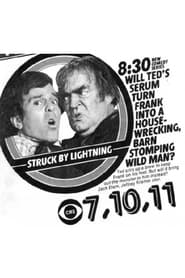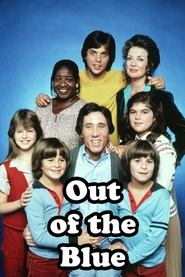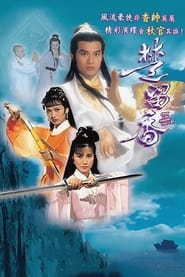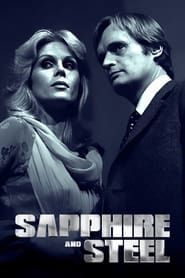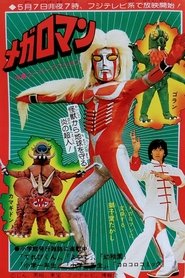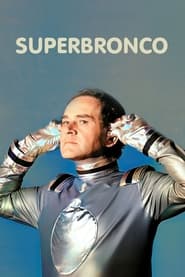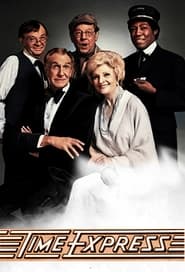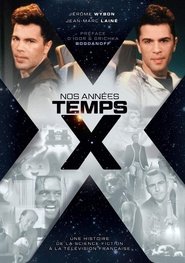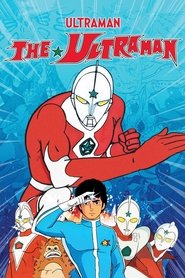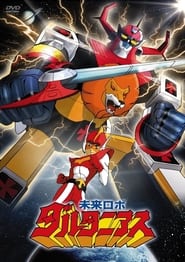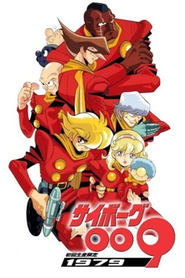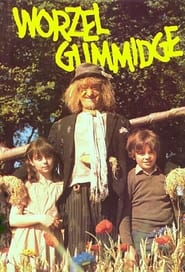New Sci Fi Fantasy TV Series on Tub Tv - Page 394
-
Struck by Lightning
1979
Struck by Lightning
1979
star 5Struck by Lightning is a 1979 American television sitcom about Frankenstein's monster, which aired on CBS. Like Working Stiffs, another 1979 CBS sitcom, this show was canceled after only three episodes were aired in the United States, although all completed episodes did end up being shown in England on ITV in 1980. -
Out of the Blue
1979
Out of the Blue
1979
star 6Out Of The Blue is an American fantasy sitcom that aired on ABC during the fall of 1979. It is chiefly notable as having featured a Mork & Mindy crossover, and for the controversy surrounding its status as a spin-off of Happy Days. The series stars Jimmy Brogan as Random, an angel-in-training who is assigned to live with a family and work as a high school teacher. The series aired from September 9 to December 16, 1979. Nine episodes had been aired at the time of cancellation. Some completed material was never broadcast. -
Chor Lau-heung
1979
-
Scientific Adventure Team Tansar 5
1979
Strange phenomena is causing creatures to awaken in ancient ruins all over the world. It's up the 5 members of Team Tansar to fight against these enemies of humanity. The show combines drawn animation with real models. -
Sapphire & Steel
1979
Sapphire & Steel
1979
star 7.4Sapphire & Steel is a British television science-fiction fantasy series starring David McCallum as Steel and Joanna Lumley as Sapphire. Produced by ATV, it ran from 1979 to 1982 on the ITV network. The series was created by Peter J. Hammond who conceived the programme under the working title The Time Menders, after a stay in an allegedly haunted castle. Hammond also wrote all the stories except for the fifth, which was co-written by Don Houghton and Anthony Read. None of the stories had onscreen titles, or any official titles assigned by the writers. The Region 1 Complete Series DVD release gives the titles "Escape Through a Crack in Time", "The Railway Station", "The Creature's Revenge", "The Man Without a Face", "Dr. McDee Must Die" and "The Trap", respectively. These titles have often been cited as having been created by science fiction magazine Time Screen. -
Japanese Masterpiece Ghost Story Theatre
1979
«Japanese Masterpiece Ghost Story Theatre» - is a 13-episode series based on classic Japanese ghost stories. -
Megaloman
1979
-
Super Bronco
1979
Super Bronco
1979
-
Time Express
1979
Time Express
1979
star 6Time Express was a short-lived American fantasy TV series, broadcast April–May 1979 on CBS and later syndicated. The series was created by Ivan Goff and Ben Roberts who had both previously been involved in the creation of Charlie's Angels. The series ran for only four episodes before being cancelled. -
Temps X
1979
Temps X
1979
-
Highcliffe Manor
1979
Highcliffe Manor
1979
star 5Newly widowed Helen Blacke inherits the Blacke Foundation, a scientific research institute located in the Highcliffe Manor on an island off the Massachusetts coast and populated by mad scientists who want to get rid of her. -
Mobile Suit Gundam
1979
Mobile Suit Gundam
1979
star 7.8What would you do if you suddenly found yourself in the middle of a war? Teenager Amuro Ray sees his life shattered when war comes to his home. During the chaos, Amuro finds himself inside the mobile suit Gundam, the Earth Federation's new secret weapon, and he somehow gets it to work. Amuro and the other refugees flee their homeland on the warship White Base. This group of children and inexperienced soldiers will change the outcome of the war. -
The Ultraman
1979
The Ultraman
1979
star 7.9Joneus (Joe), a new Ultraman from U-40, merges with young Science Garrison member Chôichirô Hikari to defend the Earth in the first animated Ultra Series entry. -
Doraemon
1979
Doraemon
1979
star 7.7Doraemon is an anime TV series created by Fujiko F. Fujio and based on the manga series of the same name. This anime is the much more successful successor of the 1973 anime. -
Future Robot Daltanious
1979
star 8.4Future Robot Daltanious was an anime series that aired from 1979 to 1980. The show is one of the mecha shows which was and still remains very popular among Asian countries and Italy. -
Cyborg 009
1979
Cyborg 009
1979
star 10Five years after the defeat of the Black Ghost organization and returning to their average lives, the 00 Cyborgs are called back into action to fight off cyborgs based off the Norse Gods, followed by a new enemy organization known as the Neo Black Ghost. -
The Secret Empire
1979
The Secret Empire
1979
star 5The Secret Empire is an American horror television series that premiered on February 27, 1979 on NBC as part of the series Cliffhangers. -
Curse of Dracula
1979
Curse of Dracula
1979
star 6The Curse of Dracula is an American horror television series that premiered on February 27, 1979 on NBC as part of the series Cliffhangers. -
Worzel Gummidge
1979
Worzel Gummidge
1979
star 6.2Worzel Gummidge is a children's comedy series, produced by Southern Television for ITV, based on the books by Barbara Euphan Todd. Starting in 1979, the programme starred Jon Pertwee in the title role and ran for four series in the UK until 1981. Channel 4 reprised the show in 1987 as Worzel Gummidge Down Under, which was set in New Zealand. -
Devil's Due
1979
Devil's Due
1979
During WW2, a young student of medicine comes to the big city to discover the secret of death, and stays at a motel that turns out to be a brothel. He is asked from Ustasha officer to perform experiments of resurrecting the dead, while the Fascist authorities look for a female communist hiding in the city.
 Netflix
Netflix
 Amazon Prime Video
Amazon Prime Video
 Apple iTunes
Apple iTunes
 Apple TV Plus
Apple TV Plus
 Disney Plus
Disney Plus
 Google Play Movies
Google Play Movies
 Paramount Plus
Paramount Plus
 Hulu
Hulu
 HBO Max
HBO Max
 YouTube
YouTube
 fuboTV
fuboTV
 Peacock
Peacock
 Peacock Premium
Peacock Premium
 Amazon Video
Amazon Video
 The Roku Channel
The Roku Channel
 AMC+
AMC+
 Kocowa
Kocowa
 Hoopla
Hoopla
 The CW
The CW
 Vudu
Vudu
 Starz
Starz
 Showtime
Showtime
 PBS
PBS
 Pantaflix
Pantaflix
 FXNow
FXNow
 Tubi TV
Tubi TV
 Kanopy
Kanopy
 Comedy Central
Comedy Central
 Crunchyroll
Crunchyroll
 Microsoft Store
Microsoft Store
 Redbox
Redbox
 Sun Nxt
Sun Nxt
 ABC
ABC
 DIRECTV
DIRECTV
 Crackle
Crackle
 Fandor
Fandor
 Plex
Plex
